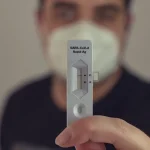As Poslovni Dnevnik/Marija Crnjak writes, 100 people are allowed to be gathered together following yesterday’s new changes, and even more people can come together if they have their digital certificates. This will finally facilitate the holding of various business and entertainment events, but provisions are in force that will significantly affect the financial structure of participants and organisers.
When it comes to the Croatian events industry, particularly business events, such as conferences and the like, it is still forbidden to set up sponsor stands, which is important for the income of the events. When it comes to ”fun” events, clubbing will be a very expensive thing to engage in for guests this summer, because when entering each of these events they will need to prove that they have been vaccinated or pay for a fresh covid test each time.
As of July the 1st, the application of EU digital certificates for travel within the European Union also officially started, but the freedom of travel that these certificates were supposed to bring has already been called into question, as some countries have introduced quarantines due to the emergence of the Delta virus strain, rendering those apparently now somewhat empty promises void.
New rules
As is now known, new epidemiological measures to prevent the transmission of the novel coronavirus, which mostly concerns gatherings and public events, came into force in Croatia on the 1st of July, 2021. As of that date, a ban on holding all public events and gatherings attended by more than 100 people in one place is in force, unless it is a public event or gathering attended only by persons with an EU digital covid certificate and with permission from the powers that be.
Public events and gatherings and ceremonies of all kinds may last until midnight, unless it is a public event or gathering attended only by persons with a covid certificate. The rules on the sale of alcohol remains in force, and catering and hospitality facilities will only be allowed to serve guests if they’re seated. Facilities registered as night clubs, night bars, disco bars and disco clubs from the category of bars are allowed to work and serve all guests without restrictions on working hours, but only in open spaces and provided that entry to their premises is allowed only to persons who present a covid certificate.
Conferences and congresses attended by up to 100 people may be held in compliance with all of the current anti-epidemic measures, but the suspension of fairs and other forms of economic and tourist events or events where products are sold, exhibited or displayed indoors remains in force. This is exactly the provision for which the Croatian events industry and various event organisers have been trying to get an exemption over recent days.
“It’s good that we can finally work with more than 25 people, which was valid until July the 1st for our industry, while, let’s say, cultural events had much more relaxed measures, although these are very similar forms of gatherings. A significant problem, however, is that we won’t be allowed to have sponsor stands, which can easily be organised in compliance with all of the measures. We’ve warned the representatives of the Ministry of Tourism several times about this, and they’re our address in communication with the National Civil Protection Headquarters, but so far we haven’t received any response from the Ministry,” revealed Jasmina Bilac, President of the Business Tourism Association at the Croatian Chamber of Commerce (HGK).
In the entertainment industry, more or less all guests will have to pay for covid tests, because many younger people still haven’t managed to get vaccinated.
Boris Suljic, the owner of the clubs on Zrce beach, points out that Novalja has prepared for that, and organised a kiosk for rapid tests that will be carried out by the Medico health institution from Rijeka.
“Entry to clubs will be possible for those who have proof that they’ve been vaccinated, have a negative test or have proof of having recovered. We’ve prepared at Zrce with a kiosk for rapid tests for guests, and so we’ll function like that in the next fifteen days. Namely, until then, these measures are valid, we don’t know what will happen next, and this lack of certainty continues to be the biggest issue for us,” stated Suljic.
At more or less 100 kuna for a rapid antigen test for each entrance to the club, 550 kuna for a PCR test and 650 kuna for a rapid PCR test, guests aren’t going to be particularly happy with this summer’s offer from the Croatian events industry, which has been among the worst affected.
For more, follow our lifestyle section.










